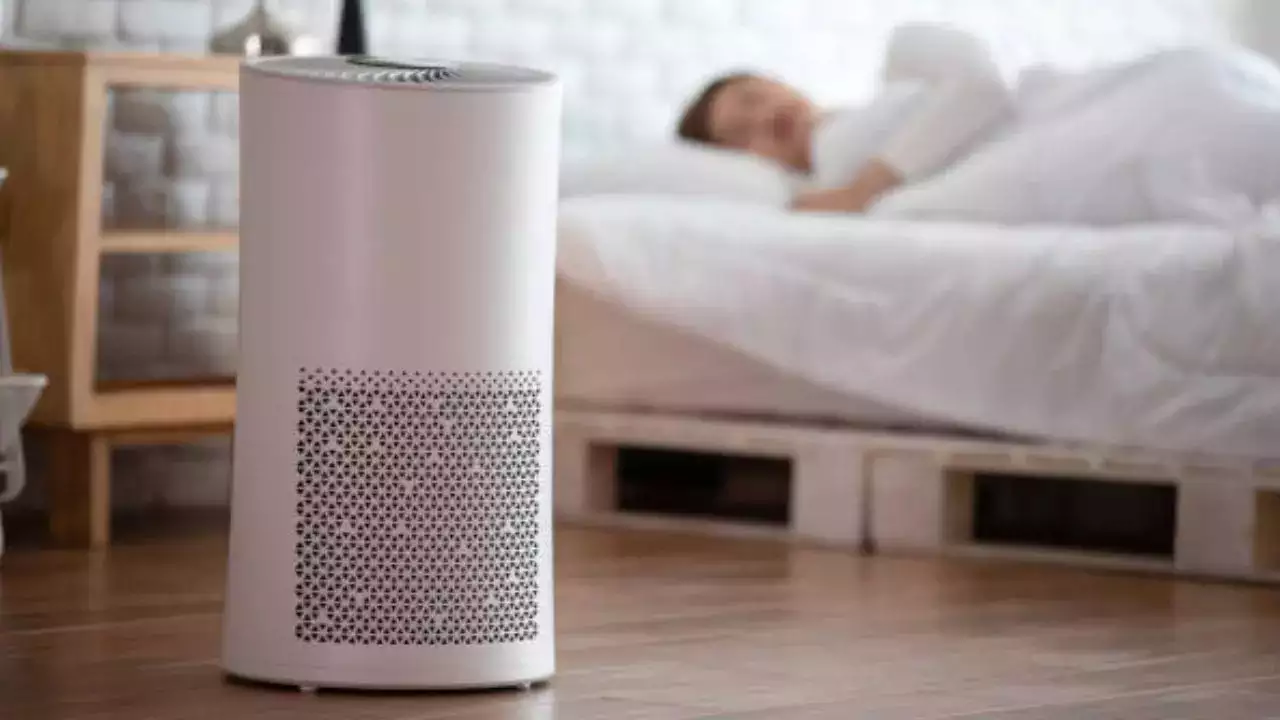News
How Much Time In An Air Purifier Is Enough To Protect Yourself From Delhi’s Polluted Air? Experts Answer

How Much Time In An Air Purifier Is Enough To Protect Yourself From Delhi’s Polluted Air? (Image Credits: iStock)
Delhi-NCR is still dealing with severe pollution levels which are not only increasing respiratory problems but are also affecting overall health. The air quality index continues to be in the poor category even after putting GRAP stage 4 restrictions, putting a halt to construction and closing schools in the national capital region. However, nothing seems to be working except for air purifiers. Air purifiers work as a life saviour as they reduce allergens, pollutants, and harmful particles that help maintain the air quality of the room. But should we spend our entire day with the air purifier on? Is it safe to sit for long hours with air purifiers on? We got in touch with Dr Sulaiman Ladhani, Pulmonologist at Wockhardt Hospitals, Mumbai Central, and Dr Shiba Kalyan Biswal- Clinical Director Pulmonology, Respiratory and Sleep Medicine, Marengo Asia Hospitals Gurugram who explains the right way to use air purifiers.
Dr Ladhani explains that air purifiers are generally safe and can significantly improve indoor air quality, reducing allergens, pollutants, and harmful particles. Dr Biswal shares that one should make sure to opt for an ozone-free purifier because that can damage things. “Just clean or change filters periodically and place it in a reasonably well-ventilated place for better performance,” he said.
How Long Should A Person Sit In A Room With An Air Purifier On?
Both the experts are of the view that air purifiers should be kept on all the time ideally to maintain optimal air quality, not just when you enter a room. Consistent operation helps ensure the continuous removal of pollutants, allergens, and fine particles from the air. “If you turn the device off and at irregular intervals, it reduces its effectiveness. When using an air purifier, ensure it's directed toward the areas where you spend most of your time—such as where you sit, work, or sleep,” Dr Ladani said.As per experts room size also impacts how long the purifier should run. For small to medium rooms, a few hours may be enough to notice a difference, but larger spaces might require longer durations. In spaces with pollution sources, like smoke or heavy cooking fumes, continuous operation of air purifiers is often necessary. In these cases, you may also need to ventilate at equal intervals by opening windows to prevent carbon dioxide buildup, which can lead to other health problems.
Dr Biswal shares that one should place the purifier centrally in an open area in a space away from walls or obstructions for optimal airflow. “Ensure windows and doors are closed while utilizing the air purifier to keep out pollutants. Clean or replace filters as necessary to keep it efficient. Do not use air purifiers in wet or very damp locations. This reduces the effectiveness of an air purifier,” he said.
Drawbacks Of Using Air Purifiers
While air purifiers are effective, they have some potential drawbacks too:
1. Noise Levels: Some models can be noisy, especially when operating at high fan speeds. This can be disruptive, particularly at night when you want a quiet environment for sleep. Before purchasing an air purifier, check the noise levels to ensure it's suitable for your space.
2. Filter Maintenance: The filters in air purifiers need regular replacement to maintain efficiency. Neglecting to replace filters can reduce the purifier's effectiveness and cause allergens to accumulate inside the device, leading to potential side effects. However, regular filter changes can be costly, so it’s essential to factor in maintenance expenses.
3. Ozone Emission: Certain air purifiers, particularly those using ionizers, may emit small amounts of ozone. Ozone can irritate the lungs and worsen symptoms for people with allergies or asthma. Choosing a model certified for safe ozone levels is crucial to avoid this risk.
4. Dryness: Continuous use of air purifiers can reduce indoor humidity, leading to dry air. This can cause dry skin, irritation of mucous membranes, and discomfort, especially during winter when the air tends to be drier. Consider using a humidifier alongside the air purifier if you notice significant dryness in the air.
5. Ineffective In Certain Cases: Air purifiers are also ineffective against pollutants trapped in surfaces like carpets or furniture. They consume electricity, thus increasing energy costs. Over-reliance on them may lead to neglect of other essential air-quality measures like regular cleaning and proper ventilation.
Get Latest News Live on Times Now along with Breaking News and Top Headlines from Health and around the world.
Our Blogs
Our Recent News

Ananya Panday Reveals How Social Media Trolls Messed Up Her Mind: “Therapy Helped Me Come To Terms With The Trauma”
Ananya Panday Reveals How Social Media Trolls Messed Up Her Mind (Image Credits: Instagram) Though s...

Want To Lose Weight? THIS Gluten-Free Superfood Can Help You Shed Extra Kilos
Want To Lose Weight? THIS Gluten-Free Superfood Can Help You Shed Extra Kilos (Image Credits: iStock...

The Green Marathon Debut: SBI and Mirchi Lead the Charge for Health and Sustainability, this year at Visakhapatnam
'Beyond Finish Lines' is a call to action, encouraging runners to view themselves as agents of posit...

